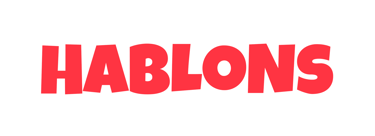Inversion in Conditional Sentences
GRAMMAR-(C1-C2)
9/22/2025
Focus: Formal conditional inversion with Had, Were, Should
Explanation
In English, we normally use if for conditional sentences:
If you study hard, you will pass the exam.
If she had come earlier, she would have seen him.
In formal English, we can drop if and invert the subject and auxiliary verb. This is called conditional inversion.
1. Had + subject + past participle
Used for third conditionals (unreal past).
If I had known, I would have called you. → Had I known, I would have called you.
If they had listened, they would not have failed. → Had they listened, they would not have failed.
2. Were + subject + to + verb
Used for second conditionals (hypothetical present/future).
If he were to lose his job, he would move abroad. → Were he to lose his job, he would move abroad.
If I were taller, I could play basketball. → Were I taller, I could play basketball.
3. Should + subject + base verb
Used for possible or polite conditionals.
If you should need help, call me. → Should you need help, call me.
If they should arrive early, tell them to wait. → *Should they arrive early, tell them to wait.
⚠️ Note: These forms are formal. They are rarely used in everyday speech, but you will see them in literature, official writing, and speeches.
Exercise 1 – Sentence Practice
Rewrite these conditionals without if using inversion.
If you had studied harder, you would have passed the exam.
If she were taller, she could play basketball.
If they should call, tell them I’m not at home.
If he had spoken more clearly, everyone would have understood.
If you were to move abroad, would you miss your family?
Exercise 2 – Identify the Structure
Read each sentence and identify which type of inversion it is: Had, Were, or Should.
Were he to win the lottery, he would buy a mansion.
Had I known about the traffic, I would have left earlier.
Should you need assistance, contact the reception desk.
Had she prepared properly, she would have passed the interview.
Were they to accept the offer, we would celebrate.
Exercise 3 – Correct the Mistakes
Some of the following sentences have incorrect use of inversion. Rewrite the incorrect ones correctly.
Had you not missed the bus, you would arrive on time.
Should she to decide, she will let us know.
Were we be richer, we would travel more.
Had they asked for help, we could have assisted.
Were I you, I would never say that.
Exercise 4 – Transform the Dialogue
Rewrite the following short dialogue using inversion for more formal effect.
Original:
A: If you had told me earlier, I would have helped.
B: If he were more patient, he could be a great teacher.
A: If they should arrive early, we will begin without delay.
Task: Rewrite each line using inversion.
Exercise 5 – Creative Writing Challenge
Write 3 formal-sounding conditional sentences using inversion. Use one with Had, one with Were, and one with Should.
Example:
Had the meeting been postponed, we would have gone home early.
Answer Key
Exercise 1
Had you studied harder, you would have passed the exam.
Were she taller, she could play basketball.
Should they call, tell them I’m not at home.
Had he spoken more clearly, everyone would have understood.
Were you to move abroad, would you miss your family?
Exercise 2
Were
Had
Should
Had
Were
Exercise 3
Incorrect → Had you not missed the bus, you would have arrived on time.
Incorrect → Should she decide, she will let us know.
Incorrect → Were we richer, we would travel more.
Correct → Had they asked for help, we could have assisted.
Correct → Were I you, I would never say that.
Exercise 4
A: Had you told me earlier, I would have helped.
B: Were he more patient, he could be a great teacher.
A: Should they arrive early, we will begin without delay.
Exercise 5 – Sample Answers
Had she trained harder, she would have won the competition.
Were we to invest now, we could make a large profit.
Should you see Mr. Tanaka, please deliver this message.


